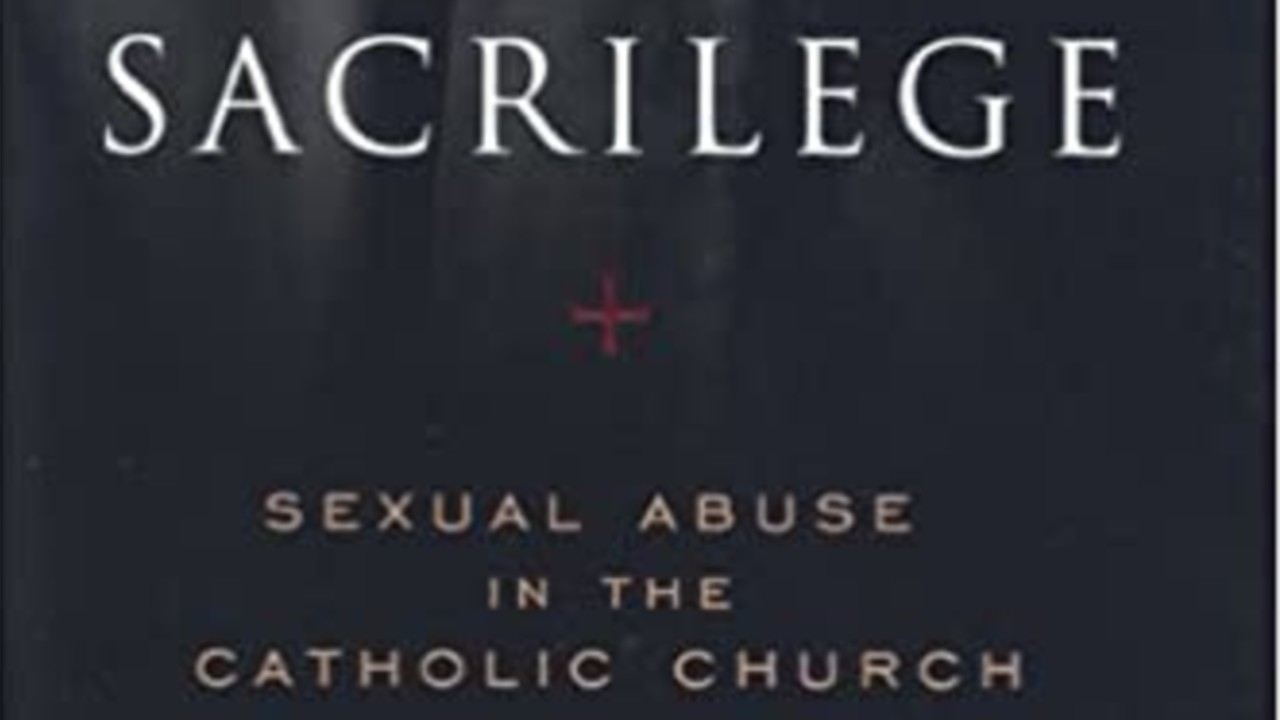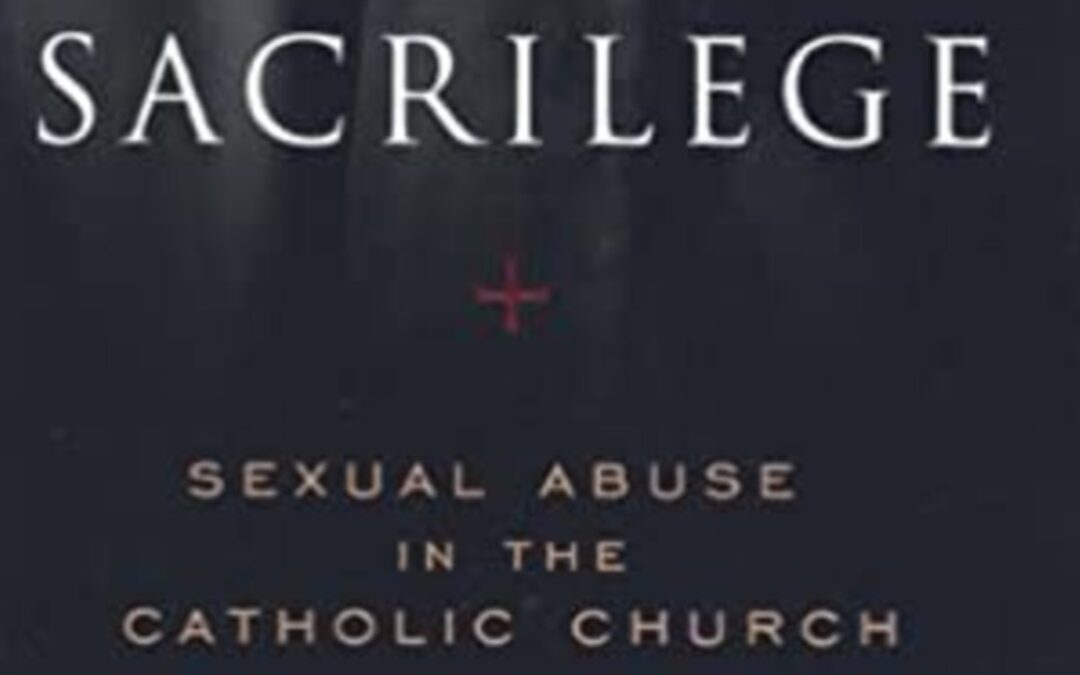
Book Review — Sacrilege: Sexual Abuse in the Catholic Church
This is one book I didn’t want to read. The subject of abuse of the bad priest who commit such atrocities of abuse, mostly among young teenagers and the bishops who don’t want to know, or cover it up and move those bad priests to other parishes without warning, should be getting everyone upset with righteous indignation. One would think it would be axiomatic to take these men to the authorities, have them charged and put into prison if found guilty. Then they are defrocked, with the victims compensated. But like with everything it is not as simple as that. I now am aware of why these things have happened and now, thirteen years since this book as published, not much has changed. This is still an important volume, as Leon J. Podles has documented and identified the problems. It must have been a hard book for him to write as it was for me to read it. Be warned, he writes about real abuse. Abuse, where the victims are often so ashamed, that many still don’t talk about it, years after the abuse happened.
There are too many things to say for a short review. One asks why don’t the bishops in charge see the wrongness of it all? Like police who like protecting their own when there are corruption investigations, doctors protecting other doctors in cases of malpractice, bishops will protect other bishops and priests when complaints of sexual abuse of priest by angry, upset parents and relatives. One problem is when they are appointed by the Vatican, they often like to choose ones who have unconfrontational personalities. They will do nothing when they are told of a bad priest. They will lie, as mentioned cover-up, moving the problem or ‘passing the trash’ to another church or city. The problem when a bishop lies, he destroys the testimony of the Gospel.
Yes, it can’t be denied it is a clerical problem, but given over 80% of the victims are young, teenaged males, it may not be something many people want to hear, but it is also a homosexual problem. The author argues while all homosexuals are not abusers, most of the clerical are homosexual in that they target males, and in fact sexually mature post-pubescent adolescent male. He writes of the gay subcultures in the seminaries. For many it is not always so much about sex as it is about having control over their victims.
Since 1950, tens of thousands of boys and girls have been molested by priests. They were chosen because they were vulnerable. It is hard to put numbers. The percentage of priest ranges from 3-6% from the alleged cases. The abuses were probably in the 5,000-10,000 range in some reports. Some studies show the victims per abuser could have committed their crimes on 150-250 on average. The number of victims is well over a 100,000-200,000, mostly teenage boys. I think these figures are from the United States. It is possible that worldwide, there could have been 45,000-100,000 abusive priests and 100,000-2,000.000 victims where most countries don’t have the reforms America has. I know this is very clinical as a try to quote raw numbers and statistics. These poor people live with the shame. May have emotional problems dealing with other people, commit suicide, lose trust in people and so on. Yet the officials and the Church remain indifferent. You can imagine many leave the Church, lose their faith in God. Souls are in danger of being lost. Yet it is not just the bishops, who too many times put blame on the victims. The laity get upset too. Many of these abusive priests are often popular. They don’t want to lose them, so they will often harass and criticize the victims too. The few stories the author gives on that alone is horrible. I have only touched the surface of this book. Often the abuses still don’t think they did anything wrong. Victims are often asked, even demanded to forgive those who molested them. But it requires the abuser to see the error of his ways too. This is one of the things that really hurts people. Only when the priest who committed the crime apologizes, who is truly sorry is healing even remotely possible. It needs to be sincere. It needs to be true repentance. Yet too often they may issue an apology through the media, and it falls flat as they may not really mean it.
I haven’t even touched upon the seminaries. Those dissenters who disagree with the Catholic teachings on sexual morality, contraception, the evils of homosexuality being a disorder. The Church putting more emphasis on secular things like psychology and not on millenniums of Catholic doctrines and teachings. Nor have a talked about the individual stories of the priests and bishops who committed these crimes or the stories of the victims themselves and much more in this five-hundred-page book.
It is hard to know of a way forward. It first needs to start with the moral outrage. People, need to be angry in a society which looks down upon anger as a weakness, even a sin. They forget Jesus himself was angry with the Pharisees and Teachers of the Law, with his own disciples, and of course when Jesus drove out the money changers in the Temple in the last week of his earthly life. The priest often seem to the laity as unimportant except insofar as they provide the opportunity for their clerical careers. Bishops seem to feel that have fulfilled their responsibilities by making sure the sacraments are available to the laity and they are administered accordingly to the law of the Church, that is validly.
I think it is agreed if the bishops and the Church won’t deal or ignore the problem, the secular government must be pass laws to make it a crime to endanger children. The law must clearly establish that the churches and other organizations will be held criminally liable if allowing abuse to go on. For Church reforms, as I said above, there needs to be a deep process of repentance. The Catholic Church needs to have a zero-tolerance policy. I remember in some podcast, there was a time if a Catholic priest broke his vows of celibacy, he was immediately removed from the Church’s ministry. The bishops need more authority over their priest in their dioceses. Not only the pope should hold bishops accountable; other bishops should be able to act, as they did in the early Church, when a neighbouring bishop starts creating problems for the Church. The laity could have more participation in church government, although not in matters of theology of course, but for example having proper audits of the money coming into the parishes, and knowing where that money goes. I agree, homosexuals should not be ordained. Even the ones who may be able to be celebrant, and agree with the Churches teachings on sexual morality are most likely still be compromised. It looks like Leon Podles favours the possibility of married priests like that of the Eastern Church. He admits, that married clergy, even in the Latin Church would increase the arability of priest. But ultimately, there needs to be forgiveness.
Now, paraphrasing Podles, yes, the Church, is liable. It should be held morally accountable. Reconciliation is hard to imagine for victims when most of the abusers and all those who facilitated them remain themselves unrepentant. It is as the author says needs to happen to heal these wounds that as wrecked the Church. Even now, after twelve years since this book was first published, that a long and painful process must begin with seeing the truth of what has happened is necessary before forgiveness is even remotely possible. If Christians are unable to go through the process of starting the healing process, the wounds that the abuse has done and wrecked and destroyed many people, how can truth-telling, repentance and reconciliation even hope to begin to heal the all the wounds that sexual abuse that has happened in the Church. If this can’t happen, the author asks what hope is there for the world that is embittered by war, and genocide and terrorism? I would also ask; how can we bring back the souls who are currently lost back to Christ and His Church? How can we bring the world to Christ, to heal this broken world? This book cries for a sequel, to bring everything up to date, especially the abuse allegations in 2018, and of course the disgraced and former Archbishop Theodor McCarrick. That will be for other writers. Patrick Coffin interviewed Leon J. Podles in #97 of the Patrick Coffin Show and he said he won’t write another one. This book is well written, well researched and doesn’t hold back on the atrocities that the Church had ignored. It is a must read for all Catholics.
Author: Leon J. Podles
Minimum Age: 18+
Type of Book: Social Issues/Catholic Church
Book Length: 675
Published: 2008
Note: This post was written by Carl Strehlow, a valued member of Coffin Nation.
____________________________________________________________________________________________________________________________
Tweet to Patrick HERE
Follow Patrick on Facebook HERE
Subscribe to the Podcast and the YouTube Channel
(Click on the images and then click on subscribe)
Apple/Mac Users:
Android Users:
Subscribe to the YouTube Channel:
While you are there, please leave an honest review.






Comments